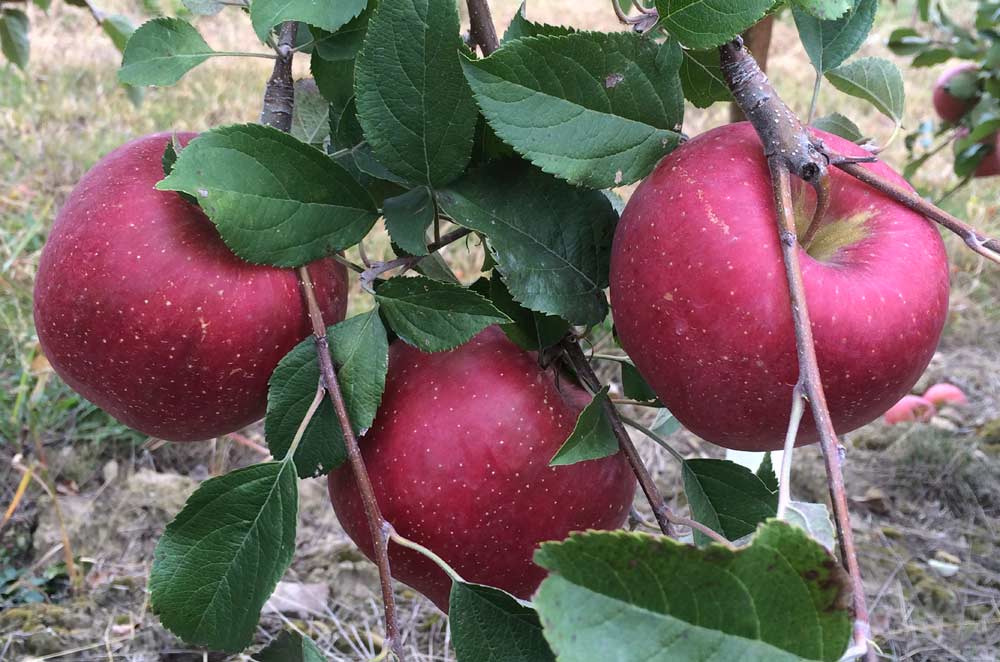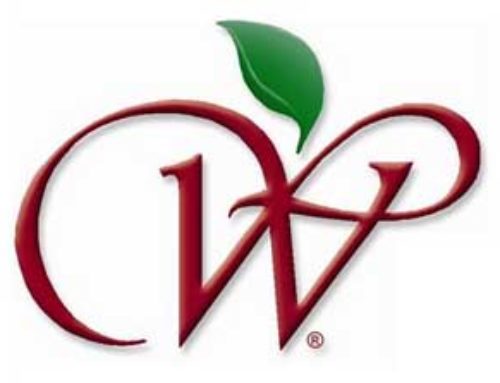
EverCrisp, the first commercial release for the Midwestern Apple Improvement Association, sold well last year, and growers are expecting a big boost in harvest this year as more orchards come into production. (Courtesy Bill Dodd)
EverCrisp, Midwest Apple Improvement Association’s first commercial release, was a hit with customers in Cleveland last summer.
It’s a Honeycrisp and Fuji cross that looks similar to a Fuji but offers the Honeycrisp texture consumers love.
After a few weeks of sales at Heinen’s grocery stores, the new apple became the No. 1 seller in the produce department, said MAIA president Bill Dodd.
“Once people got them, they came back for them,” he said.
But there were just about 2,000 boxes for customers last year. This year, as more orchards in Ohio, New York, Pennsylvania and Michigan come into production, that’s expected to increase tenfold.
By 2018, MAIA expects to ship more than 100,000 cases of EverCrisp to retailers, Dodd said.
“And that’s just fruit for wholesale. Because we are an open release, there will also be a ton of fruit at farm markets and pick-your-own orchards,” across the Midwest, Dodd said.
At his own orchard in Amherst, Ohio, Dodd has two acres of EverCrisp that all go direct to consumer.
For growers, EverCrisp is appealing because it improves on both its parents — producing higher yields than Fuji while annual bearing and storing better than Honeycrisp, Dodd said.
“To this point, our experience has been much better than with either of those two,” Dodd said. “We figure it out as we go along, and every year we get more information, but we’re cautiously optimistic.”
MAIA was formed by growers in 1998 to bring new varieties to the region, especially for smaller growers with farm markets and pick-your-own orchards that don’t have access to club varieties. Membership in the organization has taken off since it released EverCrisp in 2013.
Growers who want to plant EverCrisp must join MAIA, agree to sell the fruit using the EverCrisp name and logo and pay an annual fee of 20 cents a tree, starting in 2020. Trees are available from Wafler Nursery in New York.
— by Kate Prengaman






the picture apperes to show a well crossed russet capability of storage for family cooking into march april is this so david